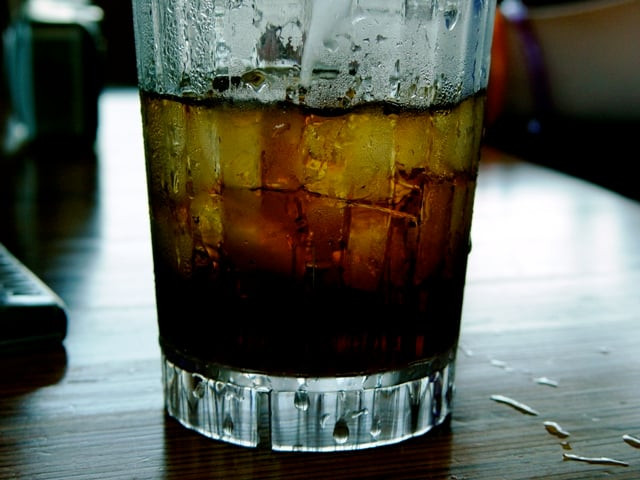Sugary soda ups risky fat deposits
The adverse effects of sugary drinks go beyond weight gain; it's the gaining of the wrong fat in the wrong places.

That kind of fat buildup has been linked in other studies to an increased risk of diabetes and heart disease.
"This study suggests that the adverse effects of sugary beverages go beyond just weight gain or fat gain. It's the gaining of the wrong fat in the wrong places," said Dr. Frank Hu, a professor at the Harvard School of Public Health, who was not involved in this study.
The researchers, led by Dr. Bjrn Richelsen at Aarhus University Hospital in Denmark asked people to drink either a litre of water, milk, diet cola or regular cola each day for six months.
The 47 people who participated in the study were all overweight or obese.
Richelsen said his team chose to study this group because they anticipated overweight or obese people would be more sensitive to dietary changes than people of normal weight.
At the end of the study the regular cola drinkers ended up with 25 percent more fat surrounding their organs, and just about doubled the amount of fat in the liver and muscle.
Such increases "are in most studies associated with an enhanced risk for developing the metabolic syndrome, type 2 diabetes...cardiovascular diseases, and non-alcoholic liver diseases," Richelsen told Reuters Health by email.
Metabolic syndrome is a group of health factors that is linked to an increased risk of diabetes, heart disease and stroke.
The type of fat Richelsen's group studied -- called ectopic fat -- is thought to be more dangerous to people's metabolic health than "subcutaneous" fat, the kind that collects under the skin.
"It is well-established that ectopic fat is 'unhealthy' and induces dysfunction of the organs involved," Richelsen said.
Hu said the results from Richelsen's experiment complement those that have surveyed people about their soda drinking habits.
"This study provides another piece of evidence to support the recommendations for the reduction of sugar-sweetened beverage consumption," Hu told Reuters Health.


















COMMENTS
Comments are moderated and generally will be posted if they are on-topic and not abusive.
For more information, please see our Comments FAQ